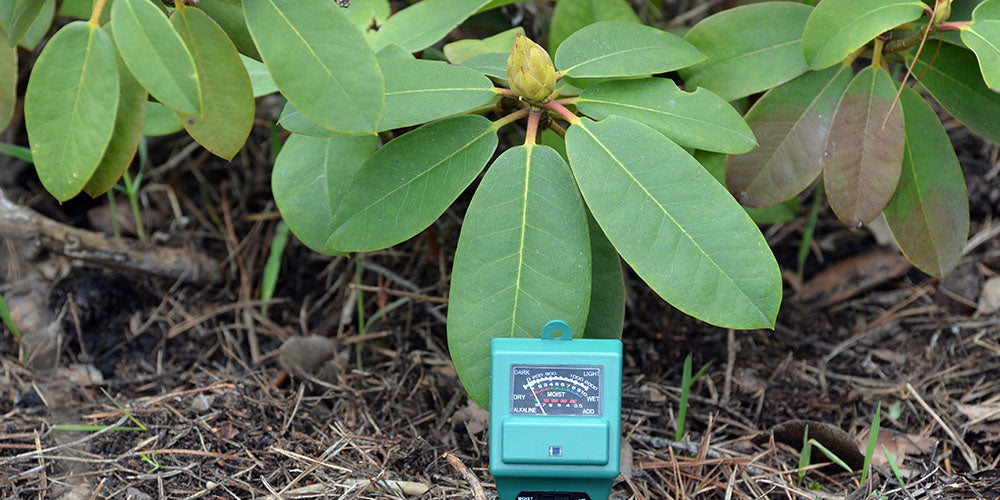Knowing how and when to feed our garden is key to getting our landscape plants looking and feeling their best.
You're late, you're late, for a very important date! Actually, you're right on time to fertilize your landscape plants so they can thrive during peak growing months. Read this guide for what landscape plants you should start fertilizing in spring.
When to Fertilize Landscape Plants
Spring and fall are the ideal times of year to fertilize your landscape plants. Spring fertilization, before the plants begin to bloom, is the perfect time to add fertilizer. Fertilizing landscape plants in spring gives them a chance to boost their growth during the best weather. Fertilizing too late in the season could cause the plant to bloom late and put them at risk for major cold damage. Landscape plants need time to wind down and toughen up in time for the winter, and fertilizing has the opposite effect! Always double-check specific fertilizing recommendations for each plant type in your garden.

Testing your Soil
After you've taken care of your spring yard clean-up, you should also be testing your soil to gauge its health and whatever nutrients it may be lacking. This will help you decide what sort of soil amendments and fertilizer you need to add throughout the growing season.
What Type of Fertilizer Should I Use?
The fertilizer type depends on the landscape plant in question. All fertilizers contain three essential elements: nitrogen, phosphorus, and potassium (NPK). Different types of fertilizer will hold different percentages of these elements, depending on plant needs. An all-purpose fertilizer will have equal parts of the essential elements and will benefit your entire garden.
For brighter, bolder flowers, choose a bloom-boosting fertilizer with a higher percentage of phosphorus. Don't worry too much about figuring out the science; asking questions at your local garden center will help you make the best choice! For all natural fertilizers, we like the ‘Tones’ from Espoma. They have mixes formulated for roses, evergreens, berries, flowers, shrubs, and more.

How to Fertilize Landscape Plants
Before you get to work feeding your landscape plants, you'll need a plan of attack. Don't fertilize on days where it's raining or too windy; this can dilute or displace your fertilizer and make it ineffective. Plan to fertilize on a calm, dry day. For most types of fertilizer, you want to make sure it reaches the roots of the plant, and also be sure not to let it get on the leaves of the plant, as it could burn them.
Landscape Plants to Fertilize in Spring
 Flowering Shrubs
Flowering Shrubs
Flowering shrubs like spirea, hydrangea, and lilacs love an all-purpose or slow-release fertilizer once a year. Another way to help certain flowering shrubs bloom well is to prune them back at the appropriate times. For example, lilacs should be pruned back shortly after their last blooms in order for them to have healthy growth the following year.
 Perennials
Perennials
Over-fertilizing perennials in spring can lead to weaker blooms. Fertilize sparingly or, opt for a slow-release fertilizer. The nutrients in your soil will likely be everything your perennial plants need, but sometimes a little help can go a long way. A few perennials, like phlox or daylilies, would thrive with an early spring fertilizer and once more after they are done blooming. You can also supplement perennial growth with compost and mulch.
 Roses
Roses
Unlike some plants, roses can handle a good dose of fertilizer. Newly-planted roses need some fertilizing to help boost their growth and develop healthy roots. For established roses, start with a high-nitrogen fertilizer in spring, then add a slow-release one. Keep an eye on your roses and if needed, you can fertilize them every 2-4 weeks.
What Not to Fertilize in Spring
Never fertilize baby plants or seedlings. Fertilizer is too strong for them and can end up burning them! When in doubt, check the growing info on each plant and the corresponding guide for the fertilizer. Just like how we take a multivitamin every day, our landscape plants need a dose of nutrients from time-to-time.
Knowing how and when to feed our garden is key to getting our outdoor space looking its best. If you're looking for more tips on fertilizing landscape plants in Bettendorf, come visit us! We'll help you get your outdoor space looking and feeling great!


